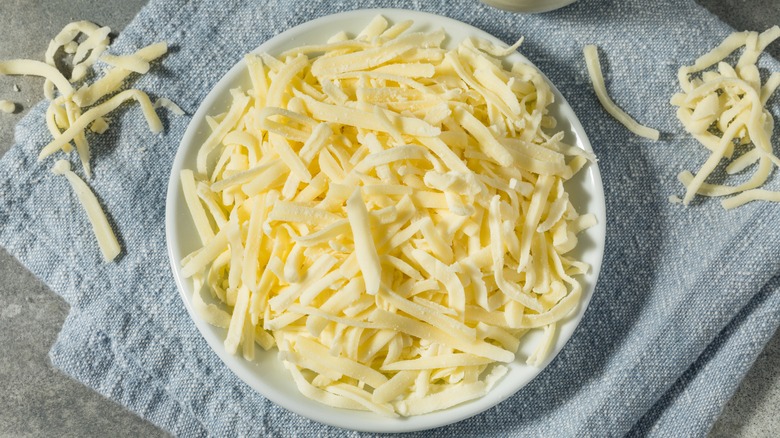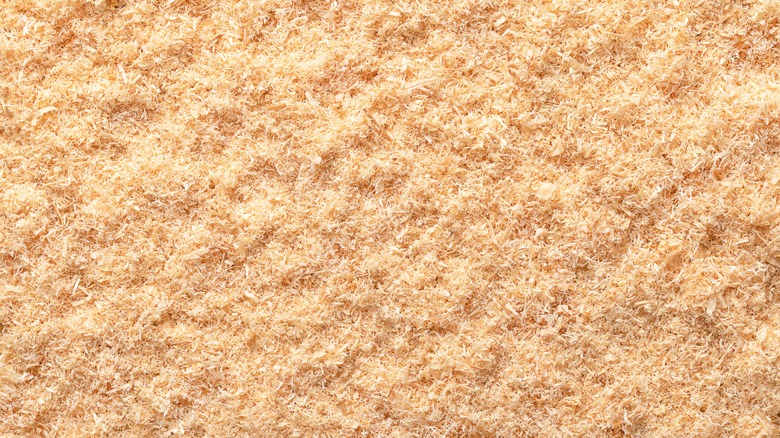Does Shredded Cheese Really Contain Wood Pulp?
Nothing makes a dish better than topping it with some shredded cheese, from enchiladas and tacos, to cheesy hash elegante and many spins on the tater tot casserole. But what about wood pulp — would you sprinkle that on your next homemade pizza? As it happens, you very well might be, but it's hidden inside a common shredded cheese additive.
It just so happens that cellulose, a naturally occurring plant fiber, is found in wood pulp, and it is often extracted from that source to be used in packaged shredded cheese. So yes, technically, there may be wood pulp in your shredded cheddar or mozzarella. Cellulose is what helps keep the cheese shreds separate and prevents them from forming clumps (it also provides fiber).
If you're wondering why food scientists don't extract cellulose for human consumption from, say, spinach or apples rather than the unappetizing-sounding wood pulp, it's a matter of how much food would be wasted in order to extract enough for all the other foods it goes into. It's simply not feasible and would no doubt raise an even greater furor over the waste rather than the fact that it was derived from this organic and cheap wood pulp source.
How cellulose (wood pulp) helped bring down a cheese company president
Cellulose is as natural as the plants from which it's derived, and it's safe for humans to consume — in fact, it could have health benefits, as it's full of fiber which can help us stay regulated. But that wasn't what was at issue in 2016 when Michelle Myrter, acting for both Universal Cheese & Drying Inc. as well as International Packing LLC, pleaded guilty before a judge. She was found responsible for lying about the makeup of her company's Parmesan cheese, which, as it happened, contained no actual Parm. Instead, their branded "100% Parmesan cheese" contained a mixture of three non-Parm cheeses, as well as — you guessed it — cellulose.
Now, cellulose in cheese is a far cry from when the English would use literal sawdust in their floury baked goods; nonetheless, its content is, in fact, regulated by the FDA, with between 2-4% percent allowed per package of shredded cheese. As it happens, though, some big-name brands like Great Value clearly skirt those allowable percentages, with its Parmesan cheese found to contain almost 8% cellulose.

